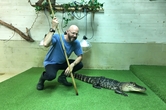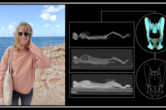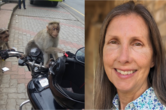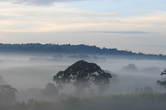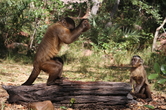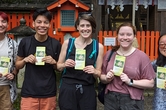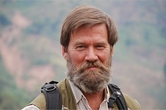International Primatology Lecture 14 | Dr. Ian Redmond OBE
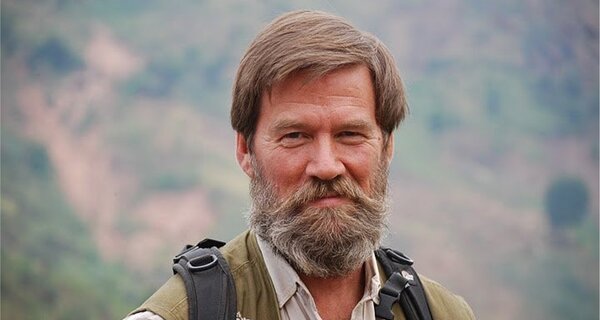
The 14th speaker in our lecture series will be tropical field biologist and conservationist Dr. Ian Redmond OBE. Dr. Redmond will present a talk titled "The Reluctant Conservationist", about his contributions to tropical field biology and conservation through his work with great apes and elephants.
About the speaker: Dr. Ian Redmond is a tropical field biologist and conservationist, renowned for his work with great apes and elephants. For more than 40 years he has been associated with mountain gorillas through research, filming, tourism and conservation work. He served as Ambassador for the UN Year of the Gorilla in 2009 and for the UN Convention on Migratory Species from 2010 to the present.
As with his mentor, the late Dr Dian Fossey, the main focus of his work shifted in 1978 from research to conservation work, after poachers killed Digit – a young silverback in one of the Karisoke study groups – to sell his skull and hands. Finding the headless, handless body of a gorilla he regarded as a friend was a turning point in his life. Ten years later in Kenya, the shock was repeated when some of the cave-elephants he was studying were killed by ivory poachers.
This lecture will describe how these events shaped his career in conservation.
Livestream on CICASP YouTube Channel
Date: July 6, 2022
Time: 17:00 Japan Standard Time (GMT+9)
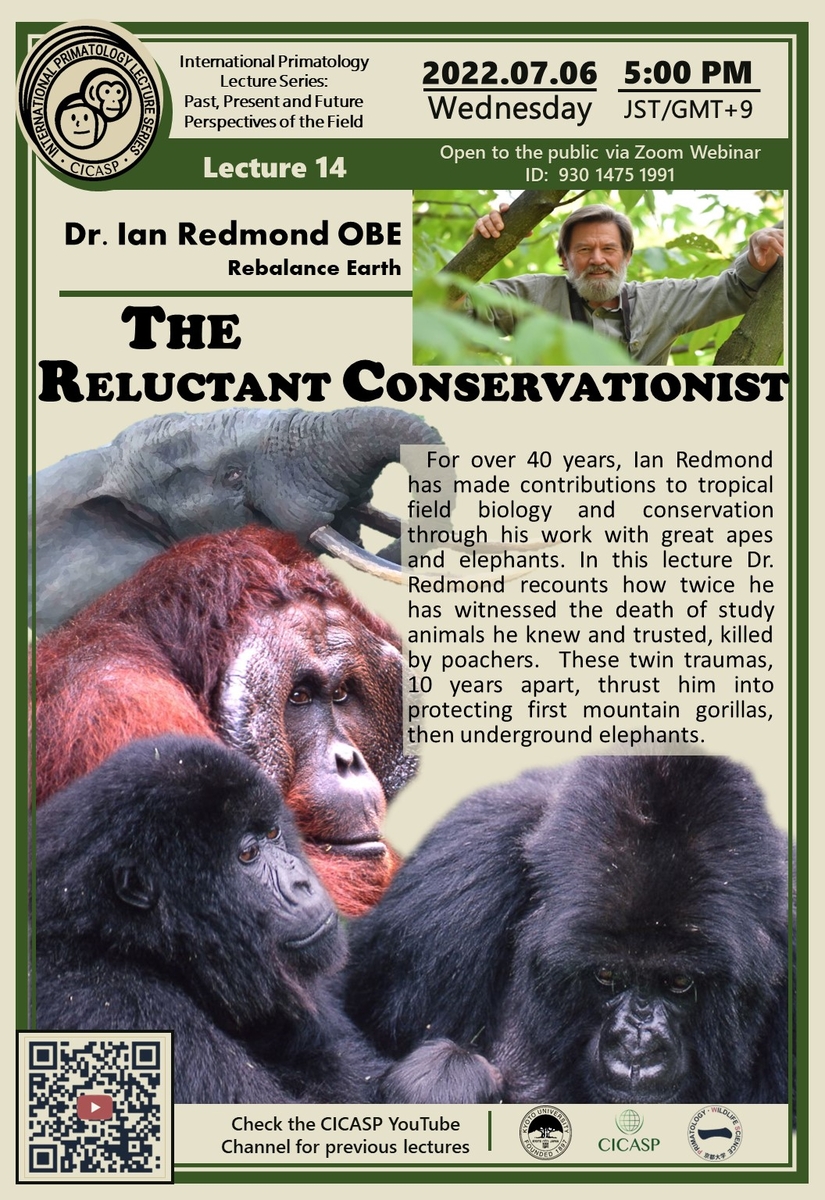
International Primatology Lectures on Past, Present and Future Perspectives of the Field
In this lecture series, we explore various origin stories as told by famed members of our primatology comunity. Most lectures are held via Zoom Webinars and archived on our CICASP YouTube Channel.
Unlike most academic lectures, which are usually focused on testing scientific hypotheses, this series is designed to offer a feel for how one becomes a professional in the field of primatology. In a way, we might think of it as a career primer for young primatologists just starting their own journeys into the nether regions of Academia. At the same time, anyone might enjoy the stories told of big dreams, exotic locations and species, and the humanity inherent in forging a new path in life and in work.
Check out all videos in this series on our CICASP YouTube channel playlist, and follow us on Facebook and Twitter to keep up with all our activities.
